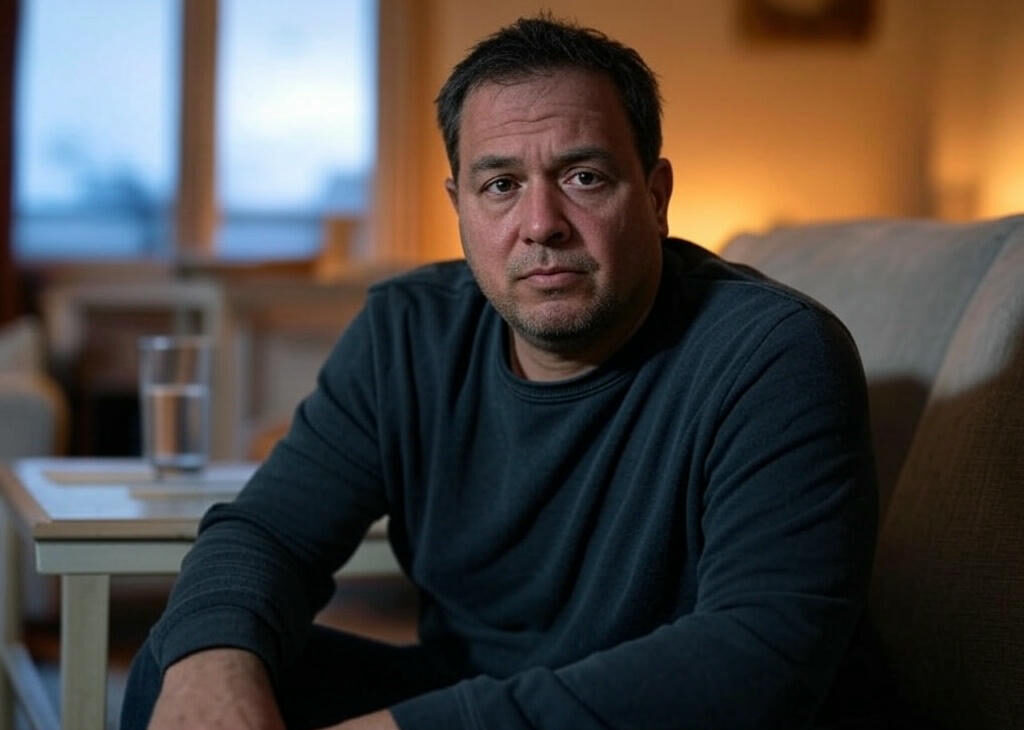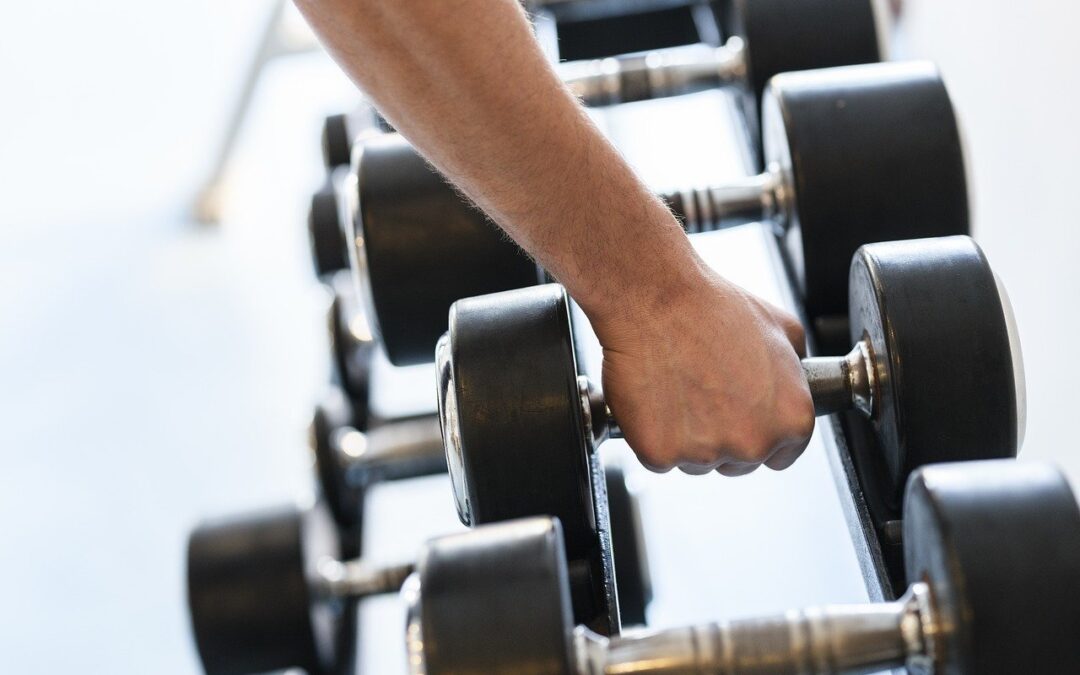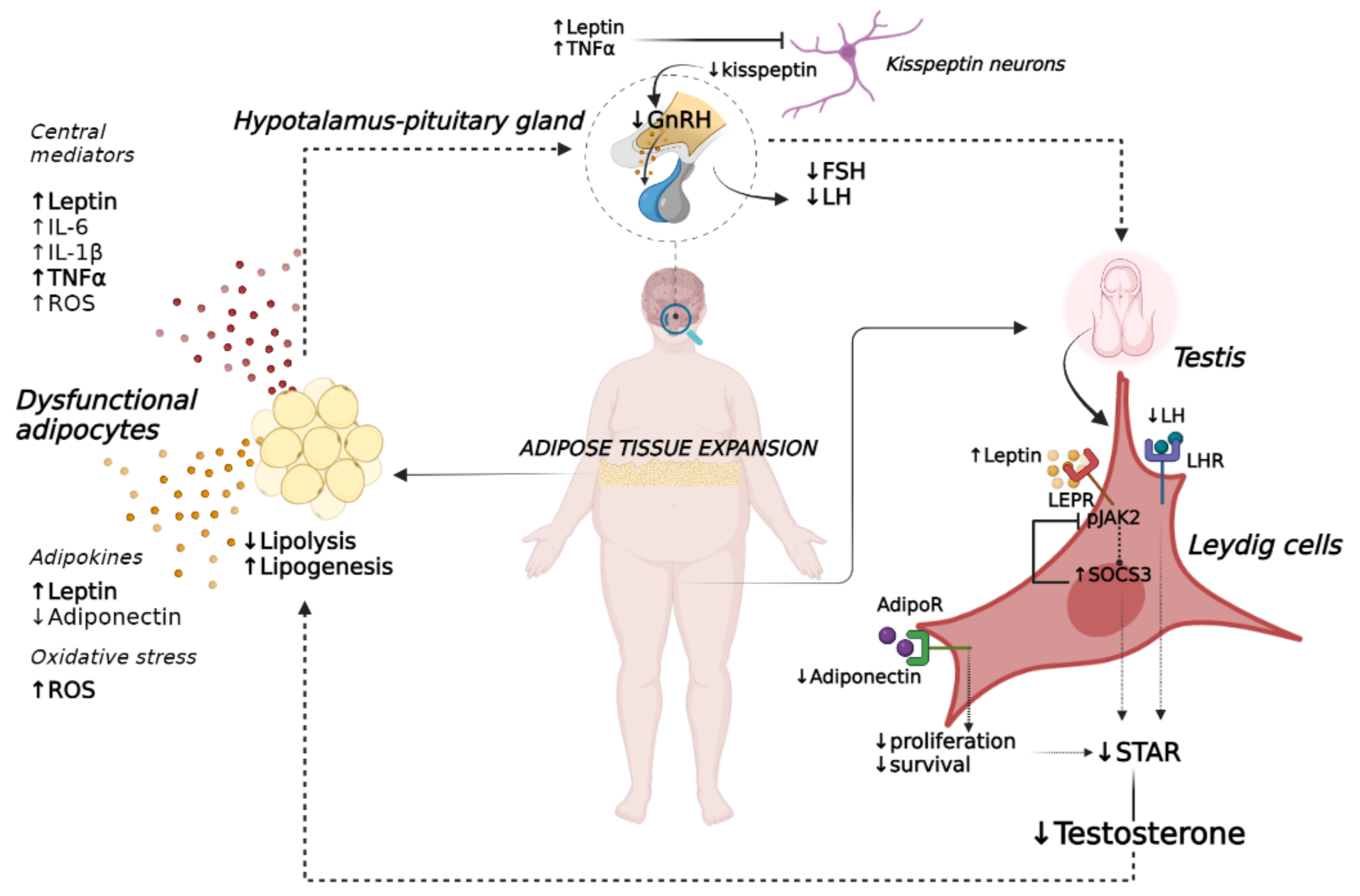Did you know that low testosterone levels can lead to increased belly fat in men? If you’ve been struggling to lose weight, especially around your midsection, your hormones might be playing a bigger role than you think.
In this post, we’ll break down the connection between testosterone and visceral fat and share actionable tips to help you balance your hormones for better fat loss.
The Science Behind Testosterone and Visceral Fat
FAT METABOLISM
Testosterone helps regulate fat metabolism by increasing the body’s ability to burn fat. It enhances the function of mitochondria, the energy-producing components of cells, leading to improved energy expenditure and fat breakdown. So, when testosterone levels are low this also slows the body’s ability for fat burning.
CORTISOL INCREASE
Lower levels of testosterone lead to an increase in cortisol, the stress hormone, which contributes to fat accumulation. High cortisol levels promote the storage of fat, especially in the abdominal area, as the body prepares for prolonged stress.
INSULIN RESISTANCE
Insulin resistance is more common in men with low testosterone, making it harder to lose weight. Without enough testosterone, the body becomes less efficient at processing glucose, leading to higher blood sugar levels and increased fat storage. This can further contribute to metabolic disorders such as type 2 diabetes.
REDUCES LIPOLYSIS
Low testosterone reduces lipolysis, the process in which fat is broken down for energy. As a result, fat accumulates more easily, particularly around the midsection.
DECREASED MUSCLE MASS
A lack of testosterone can also lead to a decrease in muscle mass, which slows down the metabolism and makes it even more difficult to burn fat efficiently.
Why Testosterone Levels Matter for Fat Loss
Testosterone is a key hormone for men’s metabolism, muscle maintenance, and fat distribution. When levels drop, the body tends to store more fat, particularly visceral fat—the dangerous fat that surrounds internal organs and increases the risk of heart disease and diabetes.
The Science Behind Testosterone and Visceral Fat
Obesity and low testosterone create a vicious cycle where each condition worsens the other.
Excess fat tissue disrupts hormone signals from the brain (GnRH) and pituitary gland (FSH & LH), which are essential for testosterone production.
As testosterone levels drop, the body becomes less efficient at burning fat and more prone to storing it, particularly as visceral fat.
This further disrupts hormone balance, slows metabolism, and increases inflammation, making it even harder for the body to produce testosterone. Over time, this cycle leads to worsening testosterone deficiency and greater fat accumulation, reinforcing the problem.
Signs of Low Testosterone
If you’re experiencing any of the following, low testosterone could be playing a role:
Increased Belly Fat Despite a Healthy Diet
Testosterone helps regulate fat distribution and metabolism. When levels are low, the body tends to store more fat, particularly visceral fat around the abdomen, even if calorie intake remains the same.
Low Energy and Fatigue
Testosterone plays a crucial role in energy production. A deficiency can lead to sluggishness, making it harder to stay active and maintain a healthy metabolism.
Reduced Muscle Mass
Testosterone supports muscle protein synthesis. When levels drop, muscle breakdown increases, leading to loss of muscle mass, reduced strength, and a slower metabolism.
Decreased Libido
Testosterone is the primary hormone responsible for sex drive in men. Lower levels often result in reduced desire, performance issues, and a decline in sexual activity.
Mood Swings or Depression
Testosterone influences neurotransmitters like dopamine and serotonin, which affect mood. Low levels are linked to feelings of irritability, anxiety, and even clinical depression.
Loss of Body Hair
Testosterone plays a role in stimulating hair follicles. When levels are low, hair growth slows down, leading to thinning or reduced facial, chest, and body hair.
Cold Sensitivity
Testosterone influences metabolic rate and energy production. Lower levels can slow metabolism, reducing heat production and making individuals more sensitive to cold temperatures.
Shrinking Testicles
Testosterone supports testicular function and size. When levels drop, the testicles may shrink or feel softer due to decreased hormone production.
Weaker Orgasms & Lower Semen Volume
Testosterone contributes to semen production and sexual function. Lower levels can result in less intense orgasms and a noticeable decrease in semen volume.
“Brain Fog” & Memory Issues
Testosterone affects cognitive function by supporting neurotransmitter activity. Low levels can lead to forgetfulness, difficulty concentrating, and slower thinking.
What Causes Low Testosterone and Fat Gain?
Several factors contribute to declining testosterone levels:
- Aging – Testosterone naturally decreases after age 30 as part of the aging process, leading to gradual metabolic and hormonal shifts that favor fat storage over muscle maintenance.
- Poor Diet – Diets high in sugar and processed foods contribute to insulin resistance, increasing inflammation and suppressing testosterone production.
- Lack of Exercise – Physical inactivity reduces muscle mass and increases body fat, which in turn raises estrogen levels and lowers testosterone.
- Chronic Stress – Persistent stress leads to high cortisol levels, which interfere with testosterone production and promote fat accumulation, particularly around the midsection.
- Sleep Deprivation – Testosterone production peaks during deep sleep; inadequate rest disrupts this process, leading to lower levels and increased weight gain.

How to Boost Testosterone and Reduce Visceral Fat
1. Optimize Your Diet
- Eat healthy fats (avocados, olive oil, nuts) to support hormone production.
- Increase lean proteins (chicken, fish, eggs) to maintain muscle mass.
- Reduce processed foods and sugars that contribute to insulin resistance.
2. Strength Train Regularly
- Lifting weights boosts testosterone naturally.
- Focus on compound movements like squats, deadlifts, and bench presses.
- Aim for 3-4 sessions per week.
3. Improve Sleep Quality
- Get 7-9 hours of high-quality sleep per night.
- Avoid screens and blue light 1 hour before bed.
- Keep a consistent sleep schedule.
4. Manage Stress Levels
- Practice meditation or deep breathing exercises.
- Engage in hobbies and activities that help you unwind.
- Avoid excessive caffeine and alcohol, which can impact hormone balance.
5. Consider Natural Supplements
- Vitamin D: Supports testosterone production.
- Zinc & Magnesium: Essential minerals for hormone balance.
- Ashwagandha: Helps reduce cortisol levels and increase testosterone.
Does Testosterone Replacement Therapy (TRT) Help with Fat Loss?
For some men with clinically low testosterone, testosterone replacement therapy (TRT) may be an option. TRT has been shown to:
- Reduce visceral fat
- Improve muscle mass
- Enhance energy levels
However, TRT isn’t for everyone. It’s best to consult with a healthcare provider to determine if it’s the right option for you.
Final Thoughts
Low testosterone doesn’t just impact energy and libido—it can also make fat loss much harder. By making lifestyle changes, optimizing your diet, and incorporating strength training, you can naturally boost testosterone and reduce visceral fat.
Have you struggled with belly fat or low energy? If your current efforts aren’t achieving the results you want, a personalized and supervised WLD program may be able to help by tailoring nutrition and lifestyle changes to your specific needs. A personalized diet plan can make a big difference in naturally boosting testosterone and optimizing fat loss. Consider trying the WLD customized meal plan, designed to support hormone balance with the right nutrients


